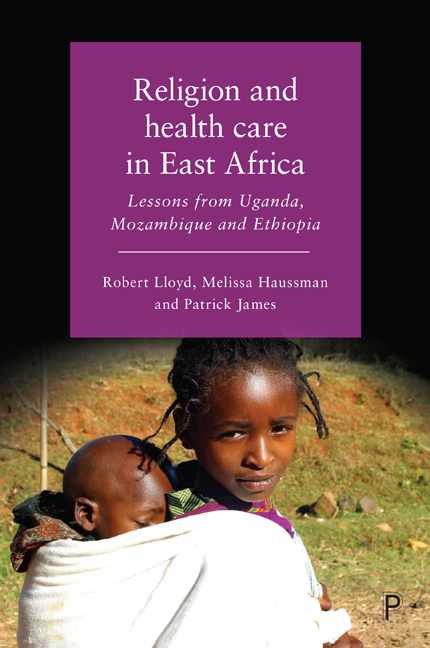Preface
Published online by Cambridge University Press: 27 April 2022
Summary
Few issues in the world cry out for attention as much as the tragic condition of health care in so much of Africa. From a recent and authoritative report issued by the Center for Strategic and International Studies (CSIS) in Washington DC, titled Public Health in Africa, it is estimated that Africa carries 24% of the world's diseases even though it only comprises 13% of the world's population (Cooke 2009).
Given the links that exist between society and health care, and the importance of religion and world view to society, the study of these things together is likely to enhance understanding of them. In fact, we take as our starting point the concept of the Social Determinants of Health—factors emphasized by the World Health Organization on its website. According to the World Health Organization (2017), “the determinants of health include: the social and economic environment; the physical environment, and the person's individual characteristics and behaviours.” Our analysis takes into account the physical environments in which Africans across the continent live, the religious beliefs (where relevant) of these citizens, and each state's level of poverty, yielding a fuller account of the citizens’ health status than any one factor alone. Among the factors referred to in the Social Determinants of Health on the World Health Organization website is that of culture, in which “beliefs of the family and community all affect health.” Clearly, religious beliefs are an important part of that measure. Another helpful point about the Social Determinants of Health framework is that “blaming individuals for having poor health or crediting them for having good health is clearly inappropriate” (World Health Organization 2017). In other words, the social and economic environments of these three African countries classified as “low income,” the physical environment, and individual predispositions all interact with each other. We are interested in identifying at what point in the chain of interactions, if at all, religious beliefs affect attitudes or beliefs about, or the availability of, access to health care in Uganda, Mozambique, and Ethiopia, along with African states in general.
The CSIS report observes at its outset that religious organizations play a role in combating disease. The remainder of its pages, however, are relatively quiet about how that occurs and what might be done to promote greater access to health care.
- Type
- Chapter
- Information
- Religion and Health Care in East AfricaLessons from Uganda, Mozambique and Ethiopia, pp. v - viiiPublisher: Bristol University PressPrint publication year: 2019

